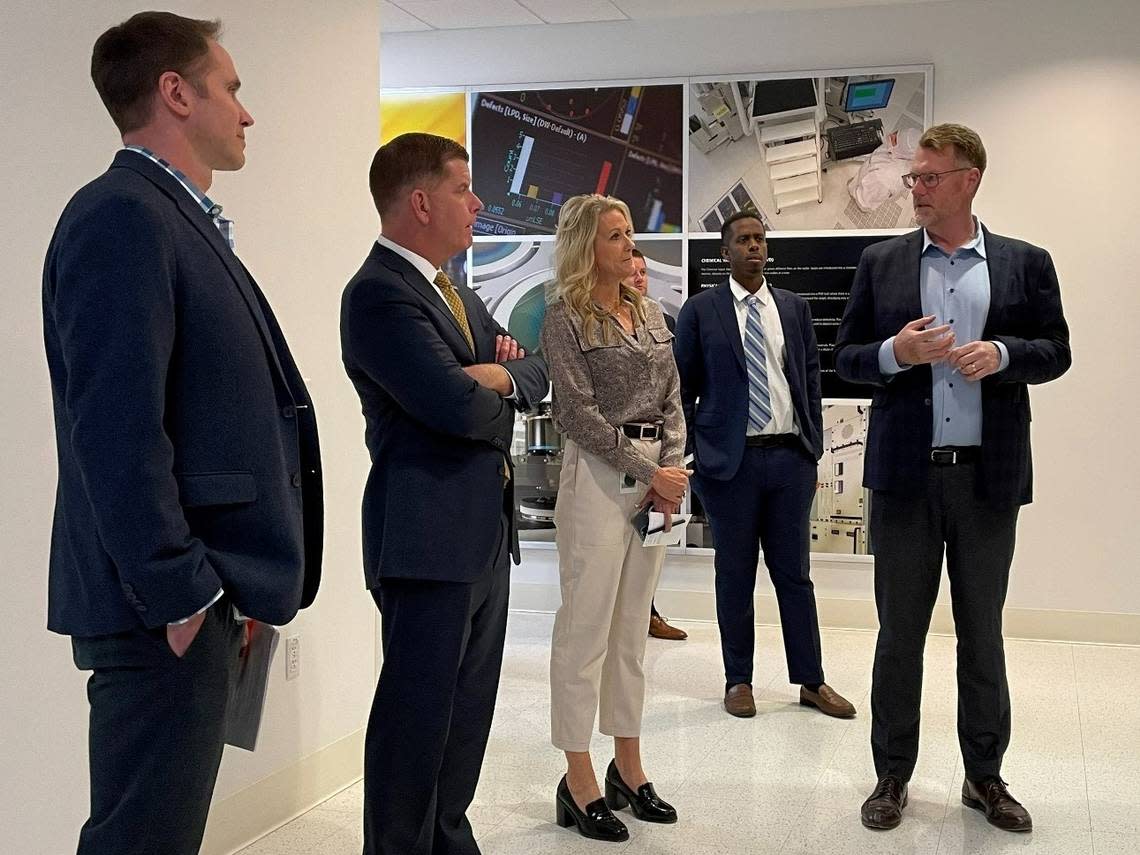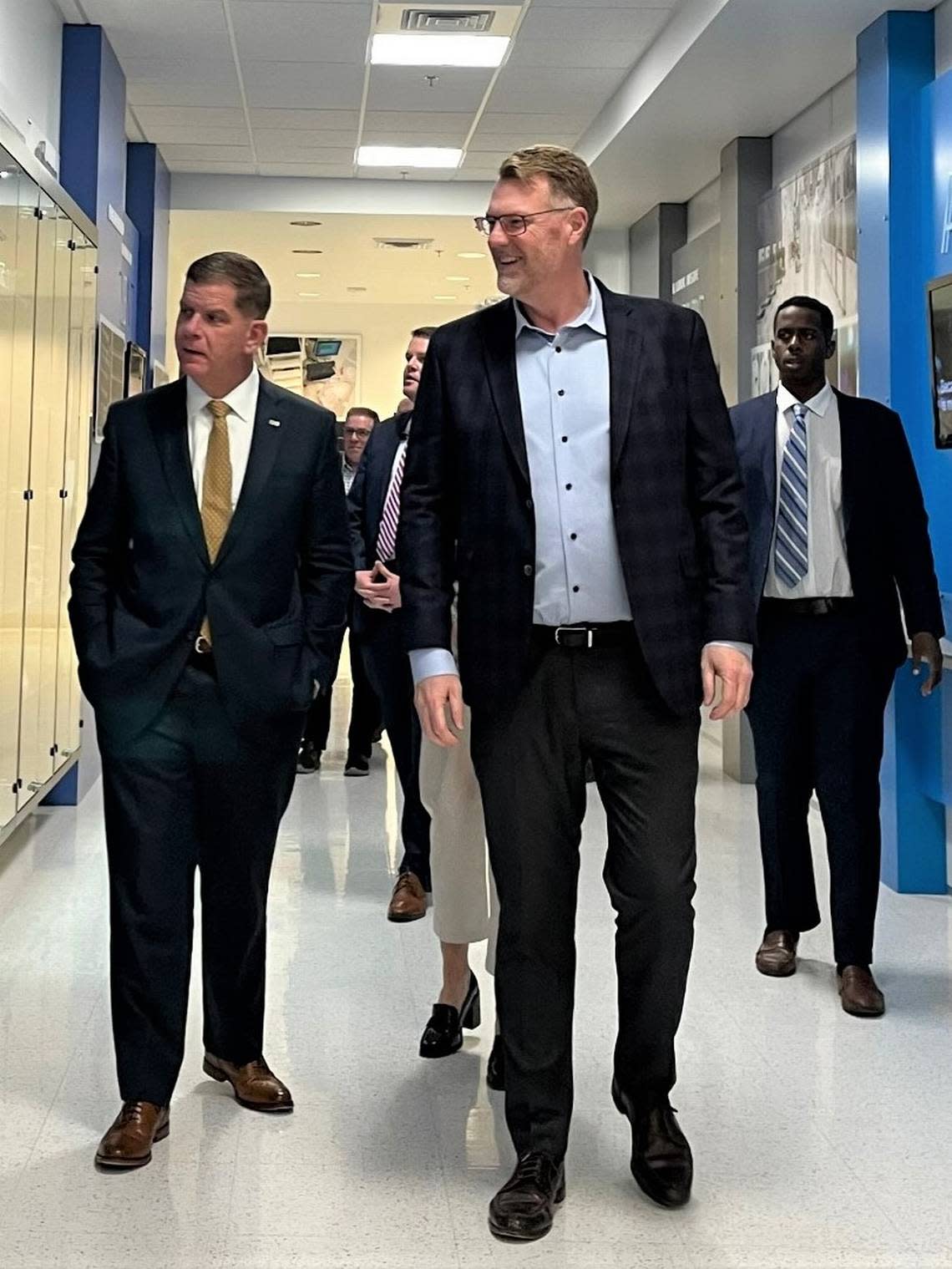Labor secretary encourages Micron to hire underrepresented groups, urges housing plan
Micron needs to hire 2,000 workers to staff its planned $15 billion memory manufacturing plant on its Southeast Boise campus. And that doesn’t include thousands of construction and contract workers needed to build the plant.
Micron leaders say they’re concerned about the company’s ability to find the workers needed. U.S. Secretary of Labor Marty Walsh suggested some answers: recruit more women, people of color, veterans and rural residents into skilled jobs that Micron offers.
Walsh toured Micron’s Boise headquarters on Tuesday as part of the company’s launch of an apprenticeship program to help bridge the hiring gap the company is worried about.

Micron hopes the program will “cultivate a pipeline of technician talent for Micron” and open “career pathways to candidates from traditionally underrepresented communities.”
“We have to have more people who traditionally didn’t know about semiconductors or have access to semiconductors, opportunities to be aware of them for their careers,” said Scott J. DeBoer, executive vice president of technology and products for Micron, in an interview on Tuesday. “And then get them into programs. We have to get populations of people that haven’t been represented in our industry.”
Walsh agreed with DeBoer, saying the labor shortage is not just a shortage of available workers, but a skills gap.
“I think there’s an opportunity for us to to get workers in an area like Boise and to really think about: How do we get more women in the workforce?” Walsh said. “How do we get underrepresented communities, our veterans. our people in rural parts of the state and country in the workforce?”
Micron typically hasn’t used apprenticeships, said April Arnzen, senior vice president and chief people officer. But to create the engineer and especially technician jobs that the company needs, she said the company must tap into “program’s that we haven’t used in the past” like apprenticeships, working with community colleges, and connecting with people leaving the military.
The program is a collaboration with the Idaho Manufacturing Alliance and the U.S. Department of Labor.

Walsh: Boise needs good housing plan
Boise employers have mused that the housing crisis could be to blame for the shortage of workers in the area. When asked about how a partnership between the city of Boise, federal government and private businesses could better serve workers, Walsh suggested the federal government should do more to help fund affordable housing.
In a meeting with Boise Mayor Lauren McLean, Walsh said he told her the city needed a “really good housing plan.”
“You have to have support behind the housing plan,” he said. “ou can’t have people saying, ‘Oh, we want housing but we don’t want it in our backyard.’ It’s about you build that type of housing. There’s a little bit of investment from the federal government, but a lot of its gonna be spurred by private investment.”
Walsh touted the CHIPS and Science Act, the law that enabled Micron’s expansion and aimed to support the semiconductor industry in the U.S. and end dependency on China. He said this law, along with Micron’s investment in Boise, puts “hundreds of millions of dollars into a city that is going to be reinvesting in itself.”
Micron’s ‘mega fab’ planned for New York won’t be bigger than Boise’s plant. Yet
Exclusive: Micron CEO reveals new details about Boise plant, plans for housing workers
